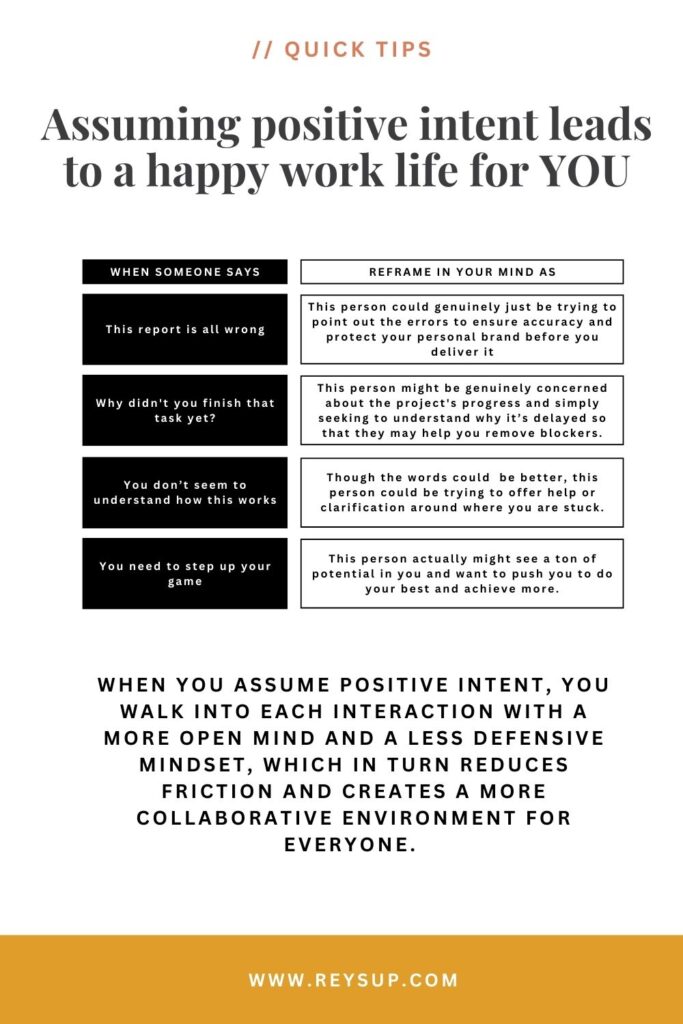This site contains affiliate links, view the disclosure for more information.
In this article we share some simple tips on surviving a job you hate. After all, not everyone has the luxury to quit their job, and you shouldn’t have to suffer day in and day out.

Surviving a Job You Hate: Simple Strategies to Stay Sane
Let’s be real, not everyone has the luxury of just quitting a job that they hate. For most of us, we have real-world responsibilities and don’t have as much flexibility to operate so freely. Maybe we have a family to support or burdensome financial obligations, or maybe we just simply aren’t ready to undergo the stress of job hunting and interviewing. In this article, we share some really simple strategies on surviving a job you hate that you can employ starting today. By making these simple tweaks into your daily practice, we hope you can find that much-deserved job satisfaction in your 9-5.
Understanding the Reality
The first thing to call out here is that regardless of your situation, you are always in control and have the power to walk away. Most employment is at will, meaning just as an employer can let you go, you can also choose to walk away. Just because you dislike (or hate) your current position doesn’t mean that you are stuck in it forever. It just means that you are making a strategic choice to stay given your current circumstances, and that is ok. With this simple reframe, you can alleviate a lot of the pressure of feeling stuck, and get your mind in a place where you are ready to take action to improve your situation.
Dealing with Difficult Colleagues
For many people who dislike their work situation, the primary issue often stems from the fact that they don’t like the people they interact with on a daily basis. After all, you spend a large portion of your life with these people, and clashing personalities or ill-intentioned attitudes have the power to really throw you off your game. Below are a few strategies that you can employ to remedy (or at least make better) those challenging intra-work relationships.
1. Always Assume Positive Intent
Yes, this is kind of an annoying one, but it’s an important one when it comes to surviving a job you hate. All too often workplace conflicts arise from simple misunderstandings. Whether it’s a statement that was made out of context or an email that was sent that landed the wrong way, it’s very easy for things to get miscommunicated and misconstrued. By assuming that your teammates have positive intentions, you can walk into each interaction with a more open mind and a less defensive mindset. This in turn will reduce friction and create a more collaborative environment.

Some examples
- Miscommunicated Statement: ‘This report is all wrong’
- Positive Reframe in Your Mind: This person could genuinely just be trying to point out the errors to ensure accuracy and protect your personal brand before you deliver it.
- Additional Thoughts: The feedback might be intended to help improve the final product, not to criticize your efforts personally.
- Miscommunicated Statement: ‘Why didn’t you finish that task yet?’
- Positive Reframe in Your Mind: This person might be genuinely concerned about the project’s progress and simply seeking to understand why it’s delayed so that they may help you remove blockers.
- Additional Thoughts: It is also possible that this person is just under pressure and their tone reflects more of a need for urgency rather than criticism. While this is not an excuse, it’s important to consider this as a very likely possibility.
- Miscommunicated Statement: ‘You don’t seem to understand how this works.’
- Positive Reframe in Your Mind: Though the words could arguably be better, this person could be trying to offer help or clarification around where you are stuck.
- Additional Thoughts: It’s entirely possible that this statement just reflects their willingness to assist or explain a concept further, and not a direct dig on your abilities or intelligence.
- Miscommunicated Statement: “You need to step up your game.”
- Positive Reframe in Your Mind: This person actually might see a ton of potential in you and want to push you to do your best and achieve more.
- Additional Thoughts: Consider the possibility that the harsh words are more as a means to drive your personal growth rather than belittle your efforts or insult your intelligence.
2. Give Constructive Feedback
Another great way to deal with difficult colleagues is to just simply give them feedback. Everyone knows that it’s better to talk about your feelings than harbor them inside until one day when they just explode. That would be a bad outcome for everyone involved.
Here are a few tricks that you can use when it comes to giving feedback and surviving a job you hate.
- Leverage the SBI framework when you can. SBI stands for ‘Situation, Behavior, and Impact’. When you give someone feedback, it’s always a good idea to explain the situation (to ensure you are aligned on what you are about to give feedback on), the behavior they demonstrated in that situation, and (most important) the impact their behavior had one you, the team, or anyone else involved. This framework ensures you keep emotions out of the feedback and just stick to the facts. For a deep dive tutorial on how to deliver hard feedback to a coworker, make sure you check out our other article here.
- Use “I” statements to explain how you felt and suggest alternatives. For example, by saying ‘I feel overwhelmed when you ping me late at night and ask me for a status update on the project. Could we instead set up a more structured way to track the timeline and progress? I want to make sure you get what you need, but the way we are currently handling communication isn’t working great for me.”
3. Manage Poor Personalities with Caution
Now sometimes, it’s truly the case that one of your co-workers really just sucks. If you’ve gone through the exercise of assuming positive intent and giving feedback, and they continue to be a menace, the best course of action is to limit interactions with them and take note of their triggers. When possible, always try to be the bigger person (don’t lose your cool because it will reflect poorly on you and your professionalism). Try to show empathy when you don’t agree with their perspective. It’s obviously okay to disagree, but before you go straight into why you think it’s a bad idea, respond with something like “I can totally see what you’d suggest that idea. Though annoying at times, this reframe in your words can sometimes disarm difficult colleagues and actually lead to much more positive interactions. It’s all about the framing of words when it comes to surviving a job you hate.
Navigating a Toxic Culture
Navigating a toxic culture where people are constantly in bad moods, overworked, unmotivated, and feel a lack of recognition can be really draining and take a toll on your mental health. We are not here to diminish that at all. At ReysUp, we have a zero tolerance for this sort of culture, but we also believe that individuals within organizations tend to have more power than they may think to change culture for the better. In this section, we discuss a few ways you can move the needle for the better if this sounds like your workplace.
But first, an important note of distinction: This is not to suggest that if you’ve identified that you’re working in a toxic culture, it’s solely your responsibility to fix it. Changing company culture is the responsibility of everyone in the organization, and it’s usually the job of HR to develop the programs and processes that enable it. This section focuses on the smaller, practical actions you can take, even if you’re not in HR, to make your work life a bit more pleasant.
1. Adopt a 1% Better Everyday Attitude
This is a great mantra to live by, especially when surviving a job you hate. Instead of trying to solve every single problem in your organization, assume the mentality that you are just going to focus on making it 1% better each day that passes. This way, the goal is not too lofty, and you can break the massive culture problem down into smaller, incremental improvements.
2. Improve Cross-Functional Relationships
This is a great place to take more ownership. If you notice that there is a rift between two teams, take it upon yourself to identify the root of the rift and set up time with the leaders on each side to come together to solve the issue collectively. Framing the meetings under the assumption that everyone is just trying to do their best but acknowledging that there may be a clash of those efforts, will only position you as a person trying to improve culture and better your team. Plus, if you are successful, it could really move the needle on morale.
3. Set up time with your HR Business Partner (HRBP)
People sometimes forget that – in most companies – there is an entire role dedicated to creating a safe and welcoming environment for employees. You can set up time with your HRBP and seek ways to partner together to improve morale. The best way to prepare for this meeting is by doing some pre-work on your end – jotting down your identified org wide issues along with a few thoughts around why you think they may be happening. Sharing specific examples of problematic behavior or systemic problems is always a surefire way to have a more productive and actionable conversation. From there, the HRBP can take the feedback back to their team and find ways to improve the issues. This is literally their job, you are just making sure they focus on the top priority issues and they will be grateful to you because of it.
Handling a Difficult Boss
There is probably nothing worse than having a boss you hate. Given this is someone you likely have to interact with on a daily basis, a sour boss-report relationship has the power to turn a work situation into something utterly unbearable. The good news is that – like the toxic work culture – there are some strategies you can employ to make things better for yourself.

1. Provide Honest Feedback During Performance Reviews
Employees are usually afraid to share feedback in performance reviews out of fear of retribution, but what they forget is that employers can literally face legal charges if they retaliate on feedback. Plus, most of these surveys are anonymous. You can totally reach out to your HR department to confirm this in writing. And if you are really worried about being singled out, just make sure to keep your responses rooted in facts and evidence, and leave out any emotional statements that could expose you as the writer. Also make sure to frame feedback in the context of improving the situation for the broader team. The more outspoken you are about issues, the more likely action will be taken to improve the situation.
2. Share Direct Feedback with Your Boss, but Do It Tactfully
Sometimes, you just need to muster up the courage and stand up for yourself. And in our experience, this almost always yields positive results, assuming you don’t get emotional and your claims are valid. Just remember to give feedback using the SBI framework (as discussed earlier) and be thoughtful about the forum through which you share this feedback. It’s usually a better idea to share direct feedback in a one on one versus a team meeting. This way, your boss doesn’t feel like their reputation is tarnished in front of the entire team and they have more space to be open and honest with you.
Also Read 7 Powerful Questions to Ask Yourself To Determine If It’s Time to Quit Your Job
3. Deal with Micromanagement Head On
One of the most common reasons people dislike their boss is due to micromanagement. There is nothing more annoying than someone hovering over you 24-7 asking for status updates and telling you how to do your work. If this sounds like your situation, our advice is to counteract it by over-communication. It’s sort of like that phrase ‘kill them with kindness’. Instead of getting defensive, change the way you operate so that there is no logical need for your boss to check in on you. Over-communicate status updates, come to your one on ones over prepared with notes, and create publicly visible trackers so anyone can see what you are working on at any given time. Though creating these resources may be annoying at first, they will certainly pay off when you notice how many fewer slacks you are getting throughout the day.
Making Friends at Work
Feeling isolated at work and like you have no one to really collaborate with can exacerbate negative feelings. Below are a few tactics you can take to build genuine friendships in the workplace and start to feel a greater sense of belonging and community. Feeling isolated at work can exacerbate negative feelings. Here are some tactics to build friendships:
1. Find Common Interests
Look for opportunities to connect with colleagues over shared interests like favorite TV shows, a common disgust for a sports team you both have, or having a mutual friend.
2. Engage in Social Activities
Sometimes it just takes showing up. If your company hosts lunch and learns or happy hours and you are the type of person that never shows up, take this as your sign to change that! The more you go, the more likely you are to meet people with common interests.
3. Offer Help and Support
One of the best ways to gain instant followership is just by offering help and support to others. You may get assigned to help someone out on a project, realize they are super cool, and then become friends with them after the fact.
By the way, you can also check out our article on how to build a strong company culture here if you need more inspiration.
Improving Your Skills
Finally, one of the other common reasons people express dissatisfaction with their job is due to a feeling of being inadequately-equipped to do the role. Feeling like you don’t have the skill sets to do the job at hand can cause a lot of stress and lead to a lot of issues. Don’t fear though. There are tons of things you can do to take control and improve your capabilities.
1. Take Advantage of Training Opportunities
Seek out opportunities within your company for training and continuing education courses. Many companies offer these resources for free, and it’s a great way to learn from experts who excel in the areas you’re trying to master. If your company does not offer this, seek out learning opportunities on sites like Udemy or Coursera to up-level certain skills.
2. Ask for Help
Don’t be afraid to raise your hand and ask for help. There is nothing worse than suffering in silence. If you don’t ask for help, you won’t be able to get better.
3. Seek Mentorship
Many companies will run mentorship programs where you can link up with a buddy within your org to learn certain skill sets or identify ways to do the job better. Definitely take advantage of these opportunities if your company offers them.
In Conclusion
Maintaining a job you hate is undoubtedly challenging, but with the right strategies and tactics, you have the power to change your environment and make your day to day more bearable. WE hope that by employing some of these tactics, you may even start to enjoy your current job. And if not, just remember that this is a temporary situation and the skills you develop in managing it will be invaluable for your future career. Good luck!




